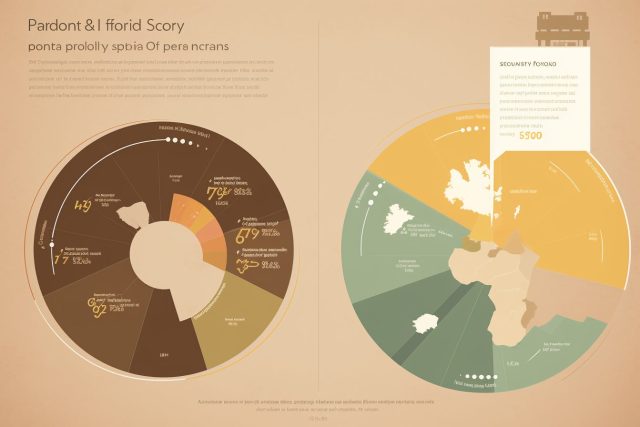Are you dreaming of a European vacation but can’t decide between Italy and Greece? Worry not, we have the answer! We’ll take a look at which country is cheaper for travelers so that you can make an informed decision. You may be asking yourself: what’s the difference between these two Mediterranean countries? In this article, we’ll explore the relative cost of travel to each destination and help you figure out where your hard-earned money will stretch further.
For those seeking some adventure and relaxation, both Italy and Greece offer plenty of opportunity for exploration. From ancient ruins to stunning beaches, there’s something for everyone – regardless of budget. But when it comes down to it, one destination might just prove more economical than the other. So if you’re looking to get away without breaking the bank, read on to discover our verdict on which place offers better value for money!
Transportation Costs
Exploring Italy and Greece by air transport is a cost-effective way to travel. Tourists can book flights in advance to secure the best deals, making it easy to save money on transportation costs. Ferry travel makes for an exciting journey as well, with large vessels connecting many of the major ports throughout both countries.
Venturing across Italy or Greece by ferry offers visitors spectacular views and unforgettable experiences. The cost of these trips vary depending on distance traveled, but they are generally more affordable than air transport when traveling between islands or coastal regions. With stops along the way, one can explore various cities and villages at their own pace while still enjoying all the same amenities offered by larger cruise ships.
When planning a trip around Europe’s Mediterranean coastlines, travelers should consider both air transport and ferry options when budgeting for transportation costs – as each provides unique opportunities that cannot be experienced from the ground up!
Accommodations & Eating Out
Accommodations and eating out in Italy and Greece can be surprisingly affordable if you know where to look. Both countries are known for their delicious cuisine, but the cost of food varies depending on region and venue. When dining out, it is customary to tip 10-15% of the bill, although this isn’t always necessary as some places include service charges in the meal price.
At restaurants, pizzerias or tavernas a main course will typically range from €10-20 while pasta dishes average around €8-14 per plate. Street food like gyros costs about €3-5 each and a beer will set you back between €2-4. If you want something more luxurious there’s no shortage of fine dining options available with prices starting at approximately €35-45.
When it comes to accommodation, both countries offer plenty of budget friendly options such as hostels or Airbnb apartments which usually start from around €25 per night. For those who don’t mind shelling out a bit extra for a higher quality experience hotel rooms can run anywhere between €70 -150 depending on location and amenities included.
List:
- Tipping etiquette: 10-15%
- Food costs: Main courses ranging from €10-20; Pasta dishes averaging around €8-14 per plate; Gyros costing about €3-5; Beer about €2-4; Fine dining approximatley€35–45
- Accommodation: Hostels & Airbnb starting from around €25/night; Hotels running up to approxiamtely€70 – 150
Shopping & Sightseeing
Italy and Greece offer travelers the perfect opportunity for bargain hunting. Whether you’re looking to purchase souvenirs, antiques or jewelry, there are plenty of deals to be had in both countries. Italy is known for its luxury fashion items – think leather goods, shoes and handcrafted jewelry – while Greece offers a selection of unique artifacts from ancient times. Both countries also have their share of tourist traps, so it pays off to do your research before hitting the shops!
When it comes to sightseeing, Italy has some incredible historical sites that should not be missed. Tourists can explore Rome’s Colosseum and other impressive ruins such as Pompeii and Ostia Antica. Meanwhile, Greece provides an array of breathtaking views including islands like Santorini with its iconic blue-domed churches perched atop dramatic cliffs. Be sure to take your time wandering through these delightful cities taking in all they have to offer!
In terms of cost comparison between the two countries, prices vary depending on where you’re shopping and what kind of souvenirs you plan on purchasing. However, overall Italy tends to be slightly more expensive than Greece due to higher taxes and import costs. With careful planning though, budget conscious travelers can still enjoy the best each country has to offer without breaking the bank! Now let’s move onto entertainment & nightlife options available in Italy and Greece…
Entertainment & Nightlife
When it comes to entertainment and nightlife, Italy and Greece are in a league of their own. From the lively piazzas of Rome to the romantic beachside bars of Santorini, these two countries offer an unparalleled experience for visitors looking to explore the best in European culture. Whether you’re searching for a cozy café or wild discotheque, there is something here to suit every taste!
When dining out, be sure to take note of local tipping etiquette as it can vary from country-to-country. In general, most restaurants automatically include service charges on your bill so check before leaving any extra money behind. Be wary of tourist traps that try to charge inflated prices for meals – if it seems too good (or bad!) to be true then it probably is!
No matter where you end up during your travels through Italy and Greece, one thing is certain: you won’t soon forget all the delicious food and exciting late nights spent exploring these beautiful countries. With plenty of attractions around each corner, prepare yourself for a journey like no other!
Exchange Rates & Currency
Exploring the world and its many wonders is an exciting adventure, but it can be costly. When traveling to Italy or Greece, understanding exchange rates and currency comparison are important to know before you go.
The Euro (€) is the official form of currency for both countries, however there could still be variations in prices between them due to economic factors like inflation. Here’s a helpful 5 item bullet list that has been put together from research:
- Exchange rate as of May 2020 – 1 € = 0.89 USD
- Inflation rate in Italy – 0.4%
- Inflation rate in Greece – 2.3%
- Current cost of living index in Italy – 48.03
- Current cost of living index in Greece – 32.29
A combination of these findings suggests that overall, Greece may be more affordable than Italy at this time; however travelers should take into account other factors such as regional price differences within each country before making any final decisions on where to visit based solely on costs alone. Whether you choose one destination over the other, being mindful of how much money you spend while exploring either country will help make your travels enjoyable and stress free!
Frequently Asked Questions
What Type Of Visa Is Required To Visit Italy Or Greece?
When traveling to either Italy or Greece, it pays to be informed about visa requirements. Both countries require a Schengen Visa for entry but fees and processing times vary so it’s best to do research before applying. As far as cost comparison goes, there is no clear winner between the two. Depending on where you’re from, one may offer better deals than the other – such as reduced costs or faster processing time – so be sure to compare them both! With all this in mind, travelers can feel confident that they’ve made an educated decision when planning their next big adventure.
What Is The Best Way To Get Around Italy Or Greece?
For travelers looking for the perfect mix of affordability and convenience, exploring Italy or Greece by public transportation is an ideal solution. With a range of budget accommodation available, you can save money on your trip without sacrificing quality. However, it’s important to factor in transportation costs when planning your itinerary as prices vary from city to city. The best way to get around both countries affordably is by taking buses or trains, which offer scenic routes through picturesque landscapes while allowing you to experience local culture and traditions firsthand.
How Safe Is It To Travel Alone In Either Country?
Traveling solo in Italy or Greece is generally safe, as long as you follow the same travel safety measures you’d use anywhere else. Both countries offer plenty of attractions and activities to explore while staying on budget – accommodation costs vary depending on location but overall they are both reasonably priced destinations. However, when it comes to cost comparison, Greece tends to be the more affordable option; its villages and islands provide a range of options for travelers looking for an authentic experience at low prices. Whether traveling alone or with friends, these two countries should be top contenders for anyone seeking a memorable journey!
Are There Any Cultural Or Religious Customs That I Should Be Aware Of?
When visiting Italy or Greece, there are some cultural and religious customs to be aware of. For example, in certain cities it is important to dress modestly if entering a church; this includes covering the shoulders and legs. Additionally, language barriers may occur depending on the region you visit – having a pocket dictionary handy can help! Currency exchange rates differ between countries so make sure to do your research before traveling abroad. With these helpful tips, you’ll have no trouble exploring both countries while feeling safe and respected as an independent traveler!
What Is The Best Time Of Year To Visit Italy Or Greece?
If you’re looking to explore the Mediterranean, Italy and Greece are two of the best places to visit. Whether you want to bask in the sun on a white-sand beach or experience the ancient culture of these countries, there’s something for everyone. When deciding when to go, budgeting tips and weather considerations should be taken into account. While prices can vary throughout the year, it’s generally cheaper during off peak times such as fall and winter (which also tend to have milder temperatures). If you don’t mind some rain, spring is great time to save money on flights and accommodations while still enjoying most activities.
Conclusion
Visiting both Italy and Greece can be a great experience, but it’s important to understand the differences between them in order to plan a successful trip. Whether you’re looking for sun-drenched beaches or ancient ruins, there are plenty of options available. Just make sure you research any visa requirements before booking tickets, as well as familiarizing yourself with local customs and safety measures.
Ultimately, though, don’t let planning your vacation take away from the fun! After all, “A journey of a thousand miles begins with one step”. So pick up your passport and get ready for an unforgettable adventure that awaits you in either country!




























